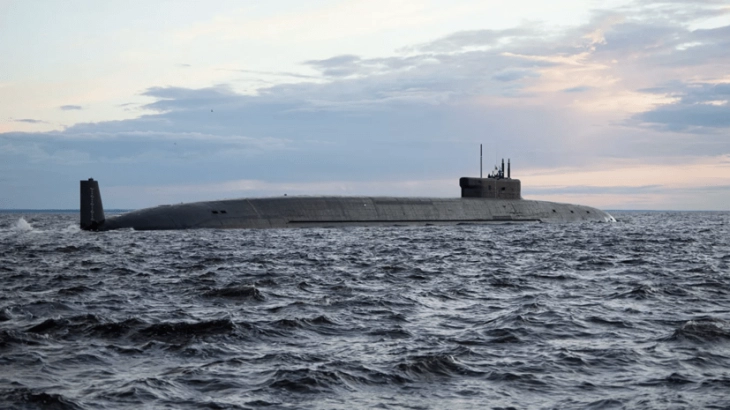Australia's submarine deal with French developer victim of Aukus pact

Sydney, 16 September 2021 (dpa/MIA) - A major contract between Australia and a French developer to build a fleet of 12 submarines was scrapped after Canberra joined a trilateral partnership with London and Washington.
Australian Prime Minister Scott Morrison, US President Joe Biden and British Prime Minister Boris Johnson on Thursday announced a new partnership, known by its acronym Aukus, which will allow the countries to share technology covering cyber security, artificial intelligence, underwater systems and long-range strike capabilities.
The first initiative part of the landmark security pact will see a trilateral effort of 18 months to "identify the optimal pathway" to get Australia nuclear-powered submarines, the leaders said.
The plan will see a controversial contract to build 12 French-designed submarines scrapped. According to Australian media the deal was worth some 90 billion Australian dollars (66 million US dollars).
Naval Group, a majority French state-owned defence and energy contractor, previously known as DCNS, was awarded the contract in 2016 to design the submarines for the Australian navy.
The protracted negotiations over the final contract were fractious and even cast doubt over the deal due to cost blowouts and production delays, but a contract was signed in early 2019.
Speaking to journalists after the Aukus announcement, Morrison said that this was the first time that nuclear submarines technology has been made available to Australia.
"Indeed one other country has only been given access to this technology back in the late '50s, the United Kingdom from the United States.
"This is a one-off, as the president in Washington has made very clear. This is a very special arrangement. And a very important one for Australia."
Morrison confirmed that the new arrangement would see the Naval Group contract scrapped.
"Australia was not in a position, at the time we took the decision back in 2016, to build and operate a nuclear-powered submarine," he said.
"It wasn't on the table for a range of reasons, so the decision we have made to not continue with the attack class submarine and to go down this path is not a change of mind, it's a change of need. The goal has remained the same."
"Australians would expect me as Prime Minister to ensure that we have the best possible capability to keep them safe," Morrison added, later adding that France and Naval Group were "advised" of the decision.
Morrison acknowledged that it was "obviously a very difficult and disappointing decision for France. I understand that. I respect it."
Following the announcement, Naval Group said in a statement that it "takes note of the decision."
"The Commonwealth decided not to proceed with the next phase of the program. This is a major disappointment for Naval Group, which was offering Australia a regionally superior conventional submarine with exceptional performances," it said.
The French contractor said that its teams "have given their best and Naval Group has delivered on all its commitments. The analysis of the consequences of this sovereign Australian decision will be conducted with the Commonwealth of Australia in the coming days."
According to the contractor work on the submarine construction yard in Adelaide, South Australia had started as the deal was formally signed in February 2019. The first of the fleet was expected to be ready sometime after 2030.
Morrison, Johnson and Biden said in a joint statement that the plan was to build on the US and Britain's submarine programmes "to bring an Australian capability into service at the earliest achievable date."
Morrison said that plan would see the submarines built in Adelaide "within the decade."
"But let me be clear. Australia is not seeking to establish nuclear weapons or establish a civil nuclear capability. We will continue to meet all of our nuclear non-proliferation obligations," the Australian premier stressed.







